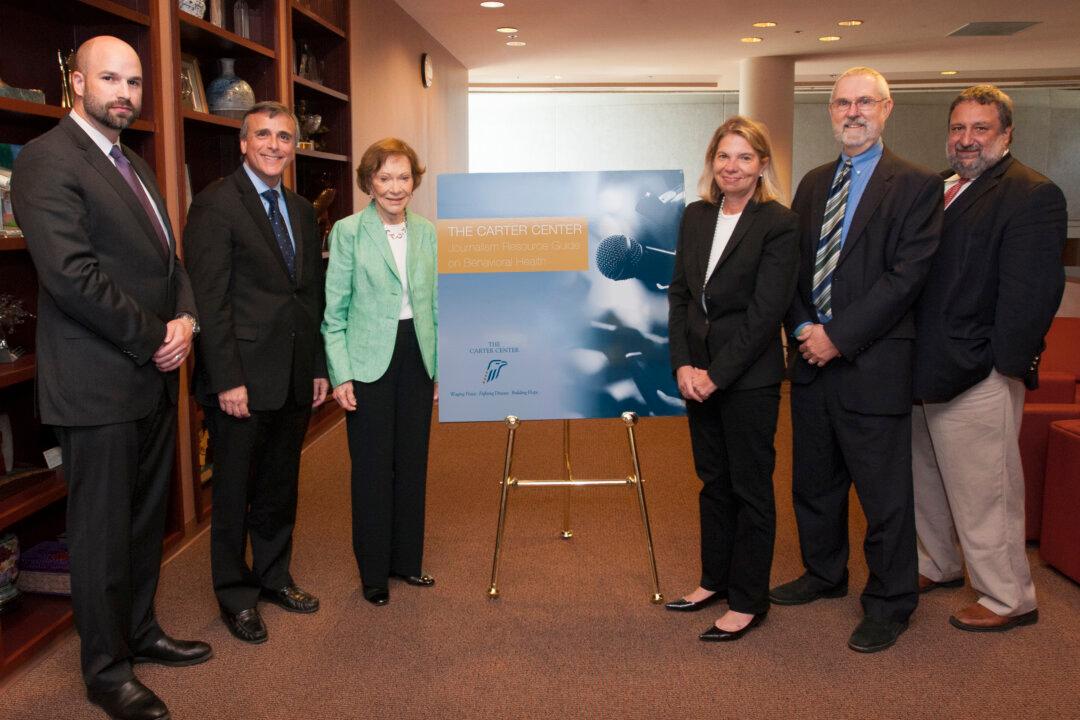ATLANTA—School officials pulled an 8-year-old boy who was having mental health issues out of class, so he could see a psychiatrist. On the bus ride home, other students taunted him. “Psycho! Crazy!” Once home, he “cried his eyes out to his parents.” For 20 years he avoided mental health services. Not if it led to that kind of rejection and contempt.
“Of course, I was that 8-year-old boy,” said Paolo del Vecchio, director of the Center for Mental Health Services, Substance Abuse and Mental Health Services Administration (SAMHSA). He and former first lady Rosalynn Carter were introducing a new national journalism guide about the best way to report on mental health, at the Carter Center on Sept. 16.
The guide tells reporters to ask themselves three questions:
- Is mental illness or substance use relevant to the story? Don’t speculate.
- What is your source for the diagnosis? Does the person making the diagnosis have first-hand knowledge of the person, and permission to share the diagnosis? Don’t quote armchair psychiatrists.
- What is the most accurate language? Don’t be like del Vecchio’s classmates. Terms like crazy, lunatic, and psycho dehumanize a person with mental illness. If it is relevant and verified, name the condition—and put the human being first: a man dealing with schizophrenia, not a schizophrenic. People dealing with mental illness, not the mentally ill.
How reporters tell the stories of people with mental illness makes a tangible difference in jobs, in funding, in seeking or avoiding treatment, in housing, in relationships, in legislation.
Pretty much every family is affected by mental illness.
Mine was. My policy is to not name private people in columns unless they give me permission. I cannot ask my kin who dealt with bipolar disorder and with schizophrenia, because they have left this life.






